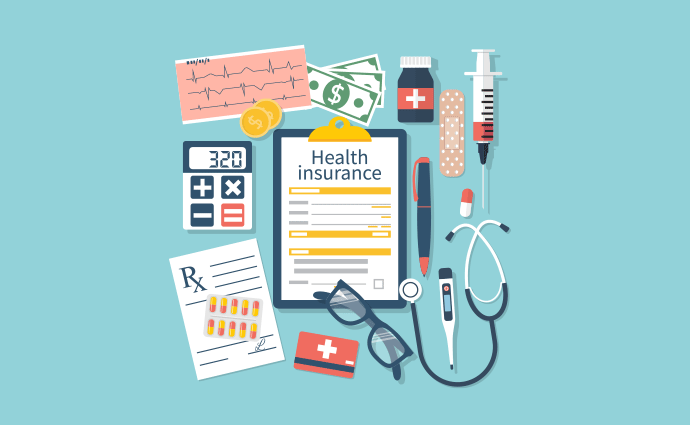
Preventive healthcare involves taking proactive steps to maintain and enhance one's health, with the goal of preventing diseases and conditions before they develop or worsen. This type of healthcare focuses on promoting healthy lifestyle choices, engaging in regular check-ups and screenings, and addressing risk factors that could lead to illness. The importance of preventive healthcare cannot be overstated, as it plays a crucial role in improving quality of life, reducing healthcare costs, and increasing lifespan.
The Importance of Preventive Healthcare
Preventive healthcare is essential for early detection and prevention of diseases. By identifying health issues in their early stages, individuals have a greater chance of successful treatment and recovery. This proactive approach differs from traditional healthcare, which often focuses on treating symptoms and managing existing conditions rather than preventing them from occurring in the first place.
Benefits of Preventive Healthcare
Physical Health Benefits
Engaging in preventive healthcare practices can lower the risk of chronic diseases such as heart disease, diabetes, and cancer. By maintaining a healthy lifestyle and staying up to date on screenings, individuals can improve their overall health and well-being. This leads to increased life expectancy and a higher quality of life as they age.

Mental Health Benefits
In addition to physical health benefits, preventive healthcare also has positive impacts on mental well-being. By reducing stress and anxiety through healthy lifestyle choices, individuals can improve cognitive function and emotional well-being. This holistic approach to health leads to a balanced and fulfilling life.
Financial Benefits
One of the key benefits of preventive healthcare is the potential for significant cost savings in the long run. By preventing diseases through healthy habits and early detection, individuals can avoid expensive treatments and hospitalizations. This not only saves money but also enhances productivity and performance at work, leading to a higher quality of life overall.
Preventive Healthcare Practices to Incorporate
Regular Check-Ups and Screenings
Regular check-ups with healthcare providers are essential for early detection of health issues. Recommended screenings such as mammograms, colonoscopies, and blood pressure checks vary depending on age and gender. By staying up to date on these screenings, individuals can catch potential problems early and take action to address them.
Healthy Lifestyle Choices
A balanced diet and regular exercise are fundamental components of preventive healthcare. Eating a variety of nutrient-rich foods, avoiding processed foods, and staying hydrated can significantly impact overall health. Additionally, incorporating regular physical activity into daily routines promotes cardiovascular health, muscle strength, and mental well-being.

Also read:- Understanding Preventive Healthcare: A Comprehensive Guide to Safeguarding Your Well-Being
Overcoming Barriers to Preventive Healthcare
Despite the many benefits of preventive healthcare, there are barriers that can prevent individuals from adopting these practices. Cost concerns, lack of awareness or education about preventive healthcare, and resistance to change in lifestyle habits are common obstacles. By addressing these barriers through education, support, and community resources, individuals can overcome challenges and embrace preventive healthcare.
Case Studies: Success Stories of Preventive Healthcare
Jane's Journey to Wellness
Jane, a 45-year-old mother of two, had a family history of heart disease and diabetes. After incorporating regular exercise and healthy eating habits into her routine, Jane lost weight and improved her overall health. Through regular check-ups and screenings, she was able to detect early signs of high cholesterol and hypertension, allowing her to make lifestyle changes and prevent further complications.

Tom's Transformation Through Prevention
Tom, a 35-year-old professional, struggled with stress and anxiety due to his demanding job. Through mindfulness practices and regular physical activity, Tom was able to reduce his stress levels and improve his mental well-being. By prioritizing preventive healthcare, Tom saw an increase in productivity at work and a better work-life balance.
Conclusion
In conclusion, preventive healthcare is a vital aspect of maintaining a healthy and fulfilling life. By prioritizing regular check-ups, screenings, healthy lifestyle choices, and overcoming barriers, individuals can benefit from improved physical and mental health, financial savings, and an overall higher quality of life. It is important for individuals to take proactive steps in incorporating preventive healthcare practices into their daily routines to transform their lives for the better.
FAQs
Q: What is preventive healthcare?
A: Preventive healthcare involves taking proactive steps to maintain and enhance one's health with the goal of preventing diseases and conditions before they develop or worsen.
Q: Why is preventive healthcare important?
A: Preventive healthcare is essential for early detection and prevention of diseases, leading to successful treatment and recovery.
Q: What are the benefits of preventive healthcare?
A: The benefits of preventive healthcare include lower risk of chronic diseases, improved mental well-being, potential cost savings, increased life expectancy, and a higher quality of life.
Q: What preventive healthcare practices should I incorporate?
A: Regular check-ups and screenings, healthy lifestyle choices like balanced diet and exercise, and overcoming barriers are key preventive healthcare practices to adopt.
Q: What are common barriers to preventive healthcare?
A: Cost concerns, lack of awareness about preventive healthcare, and resistance to lifestyle changes are common barriers to adopting preventive healthcare practices.
Q: Can you provide examples of success stories with preventive healthcare?
A: Jane's journey to wellness and Tom's transformation through prevention are examples of success stories where individuals improved their health and well-being through preventive healthcare practices.


0 Comments